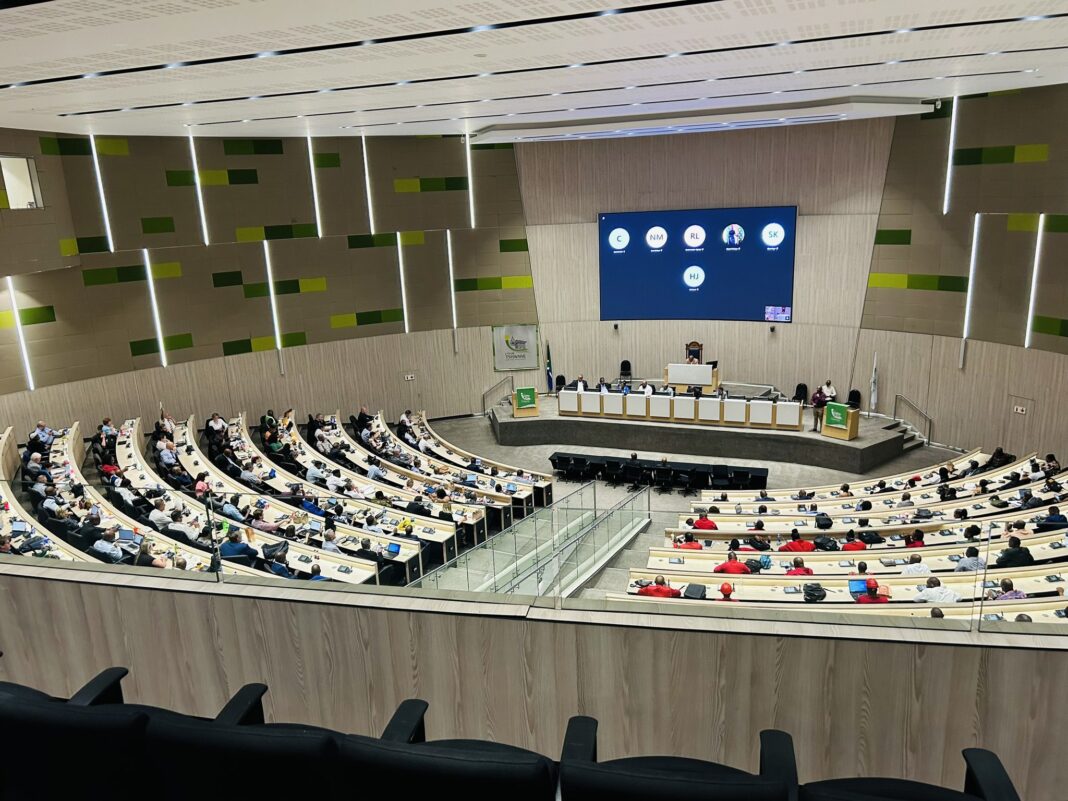Johnathan Paoli
The ongoing Tshwane protests have culminated in a recent conflict between the DA and ActionSA, following the City Council meeting on Thursday, with the ‘blue berets’ accusing ActionSA of backstabbing tactics for submitting an urgent motion to compel Tshwane Mayor Cilliers Brink to negotiate with Samwu.
Following a meeting with the South African Municipal Workers’ Union (Samwu) to discuss assistance in ending the ongoing strike action in the city, ActionSA submitted an urgent motion to the Speaker of Council, seeking to compel Brink to negotiate with the striking workers as well as to consider the demands put forward.
The DA has considered this decision treachery, accusing ActionSA of stabbing Brink in the back and pulling the rug from under the coalition’s feet.
DA Tshwane Spokesperson Kwena Moloto said that in addition to not consulting the Multi-Party coalition on this motion, supporting this motion would essentially condone violence, destruction, and intimidation.
Moloto said that the foundation of ActionSA’s motion lacks substance, as the City has made numerous efforts to engage with the unions involved in the protests and in light of the unions distancing themselves from the strikes, the motion calls on the mayor to engage with criminal elements.
“The DA is a party guided by principles. If ActionSA chooses to engage in politics that undermine the coalition and potentially return the city to the ANC, the DA Caucus will persist in fighting for residents from the opposition benches,” Moloto said.
However, ActionSA National Chairperson Michael Beaumont said that while the matter will be addressed through the multi-party coalition structures, it remains apparent that the DA and ActionSA hold different ideas on how to deal with the recent protest action.
Beaumont said that the entire strike action arose from a 3-year salary agreement signed by DA Mayor, Randall Williams, committing the City of Tshwane to sub-inflation salary increases of 3.5% in 2021, 4.9% in 2022 and 5.4% in 2023, which was subsequently ratified by the Bargaining Council and, as such, became legally enforceable in terms of the Labour Relations Act.
The chairperson said that the City of Tshwane has only implemented the increase for 2022 and has refused the other two, unsuccessfully applying for exemption from the Bargaining Council and lodging appeals, the earliest of which still remains unheard.
While Beaumont acknowledged the city’s cited reasons for the inability to meet the required raises as financial difficulties, he said that such a challenge could only be dealt with in terms of sitting down with the unions and renegotiating a new deal both affordable and ensuring a stable labour environment.
He defended his party’s motion, saying that ActionSA remains committed to the multi-party coalition agreement which, in many instances, speaks of the imperative of stable labour relations that enable service delivery across Tshwane.
“This commitment makes ActionSA unapologetic when we need to call out a coalition partner that falls short of the standards of this agreement. This is a strength of coalitions rather than single party majority governments that proceed with a course of action even when it is counter to the law, the interests of residents of just basic common sense,” the national chairperson said.
The issue is expected to be dealt with within the Charter structures, following the official initiation of a dispute against ActionSA by the DA and VF.
INSIDE POLITICS

